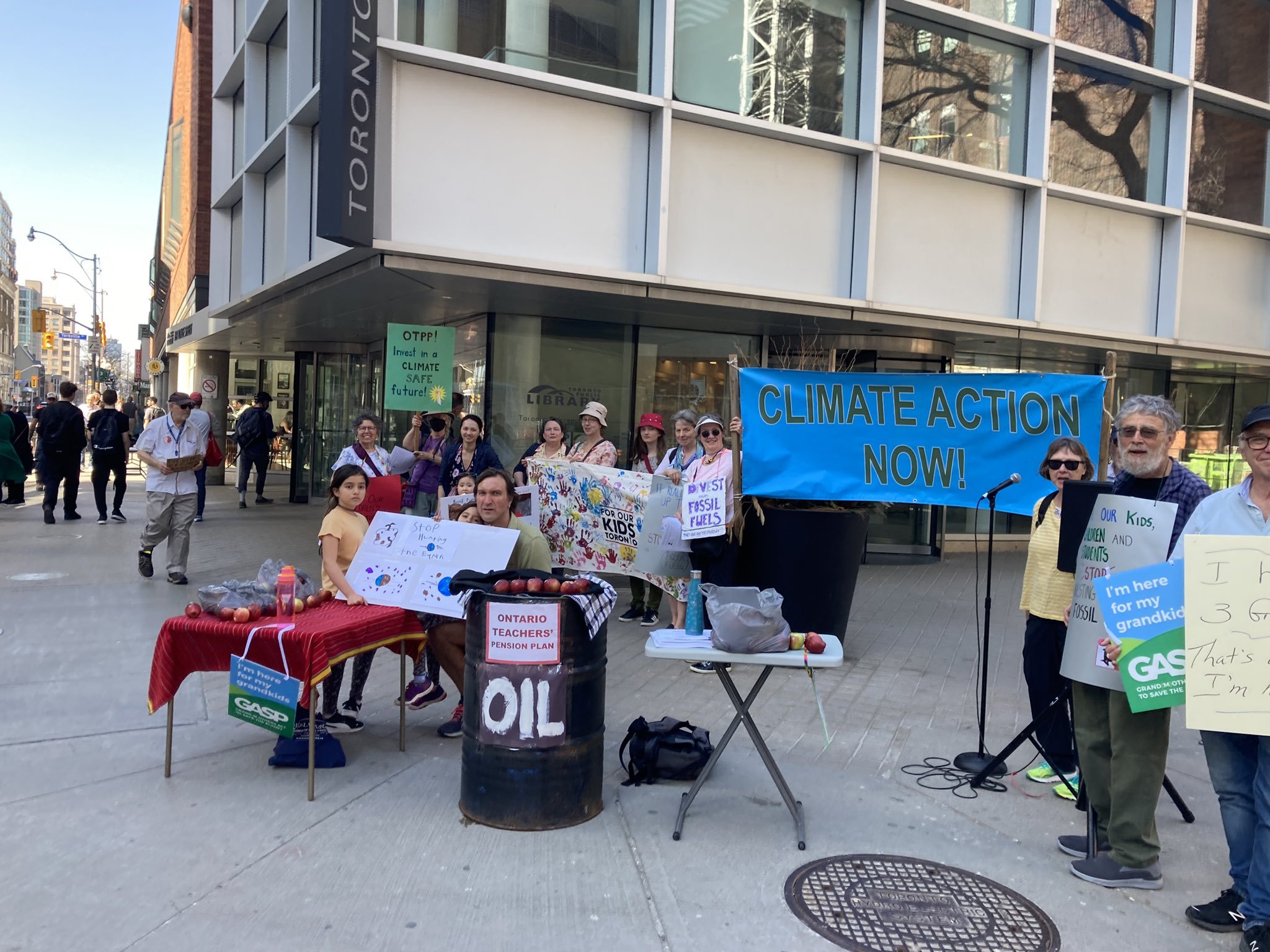Climate Pension Quarterly - Issue #8
Wildfires are raging in almost every province and territory across the country. Canadians have had to flee their homes in evacuation areas, and millions of people across the continent have been affected by poor air quality. The financial sector remains an important and as yet unsolved piece of the climate puzzle. As we stare down increasingly close-to-home climate impacts, Canada’s financial institutions must move beyond business-as-usual short-term thinking and lofty net-zero by 2050 commitments. Securing a livable future requires an immediate end to investments in fossil fuel expansion and a rapid scale-up of investments in climate solutions.
We’re glad to report that this quarter saw inspiring actions from pension plan members seeking to hold their pension managers accountable for investing their savings in a safe retirement, which inherently requires a liveable planet. Shift was also pleased to see some Canadian pension managers step up during shareholder season, with two bringing forward climate-related shareholder resolutions. A handful of others voted against corporate directors in cases where companies failed to adequately address climate-related financial risks. While the Canadian track record pales in comparison to international examples (read more in this Quarterly’s Climate on the Agenda During Shareholder Season), we’re seeing early signs that the Canadian pension sector has the ability to engage companies much more seriously, publicly and consequentially on climate.
Other news from 2023’s second quarter included:
A Sustainable Investing Report from the Caisse de dépôt et placement du Québec and an ESG Report from the British Columbia Investment Management Corporation
Annual Reports from the Investment Management Corporation of Ontario, Canada Pension Plan Investment Board, Public Sector Pension Investment Board and Ontario’s University Pension Plan
No news yet of a climate plan from the Alberta Investment Management Corporation, which committed to a climate plan to come in its second quarter, or the Ontario Municipal Employees Retirement System, which committed to a climate plan this year, and no interim targets announced yet from OPTrust, which has committed to announce targets sometime in 2023.
A Net Zero Standard for Oil and Gas from the Institutional Investors Group on Climate Change, a Position on the Oil and Gas Sector from the Net Zero Asset Owner Alliance, and an updated Net Zero Company Benchmark from Climate Action 100+.
Investing in Climate Chaos and Banking on Climate Chaos, two reports tracing the financial sector’s complicity in funding companies whose business models do not align with climate safety.
Pension beneficiaries continued to pressure their funds to act in line with climate science:
In April, beneficiaries (pictured) of the Ontario Teachers’ Pension Plan, along with their families and other supporters, staged a rally outside of the fund’s Annual General Meeting (AGM), calling on their pension fund to stop investing in fossil fuels and to pour more money into climate solutions. Inside the AGM, members pressed the fund’s leadership on questions about its $7.4 billion in direct oil and gas assets, a board director who simultaneously sits on the boards of four fossil fuel companies, and the pension plan’s lack of a policy on Indigenous rights.
In May, beneficiaries of the University Pension Plan wrote “Now’s the time for Ontario’s University Pension Plan to lead the way on phasing out fossil fuels” (National Observer):
"If the University Pension Plan is serious about its desire to address what it calls the 'systematic and material risk to the ecological, societal and financial stability of the economy as a whole,' and if it wants to distance itself from the oil and gas sector’s history of violating Indigenous rights, it should use its Climate Action Plan update and annual Responsible Investing report this summer to make a bold commitment to end investment in the oil and gas industries.”
This month, members of Ontario’s Public Service Pension Plan wrote to the fund’s investment manager, the Investment Management Corporation of Ontario, asking it to explain its confusing “climate guardrails”.
“As an environmental lawyer with decades of experience in climate and energy policy, I am totally unimpressed by IMCO’s so-called ‘climate guardrails’.”
- Dianne Saxe, a Toronto City Councillor, environmental lawyer, former Environmental Commissioner of Ontario, and member of Ontario’s Public Service Pension Plan.
And members of Canada’s Public Sector Pension Plan continue to add their names to an open letter calling for an embattled Imperial Oil director to be removed with cause from the Board of Directors of their pension manager, PSP Investments.
Looking ahead, we continue to wait for the federal government to move on Canada’s Taxonomy Roadmap Report. We’re also eyeing the progress of the Climate Aligned Finance Act, which has recently been referred to the Senate Banking Committee for study. In May, 17 MPs from four different parties backed a call for the federal government to use “all legislative and regulatory tools at its disposal to align Canada’s financial system with the Paris Agreement.” Finally, based on the climate literacy we’ve seen demonstrated by the University Pension Plan in Ontario, we’re keenly awaiting the fund’s Climate Transition Investment Framework.
In this edition of the Climate Pension Quarterly, we review the latest climate announcements from pension funds, summarize news about their investments in fossil fuels and climate solutions, and highlight pension sector news domestically and internationally. The full stories are in a downloadable pdf, which you can access here.

